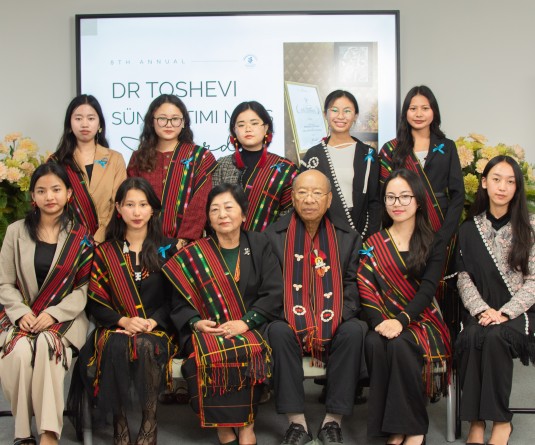
Student survey shows almost half of respondents think better facilities and employment opportunities lie outside Nagaland
Morung Express News
Dimapur | November 5
While the COVID-19 pandemic has given rise to the need for self reliance, students in Nagaland have opined that educational facilities and opportunities for employment are better outside the State.
Out of 3067 students who responded to the online LaunchPad survey, 69% expressed their desire to pursue higher education in Nagaland. However, 47.86% or 1468 of them were of the view that pursuing higher education outside Nagaland would give them better exposure, facilities and opportunities.
18.5% or 569 of them said that more career options for their qualification were available outside the State. Meanwhile, other reasons included unavailability of course or subject in the State, better or more qualified faculty and family and peer influence etc.
LaunchPad is a career guidance and employability skill development program explicitly designed for students pursuing their 12th standard in all Government Higher Secondary Schools across Nagaland. It is an initiative of the Department of Youth Resources and Sports, Government of Nagaland, in partnership with YouthNet and supported by the State Department of School Education.
According to the report, the survey period was from September 2020 onwards to assess the aspirations opinions and thoughts of the students from 44 Government Higher Secondary Schools across 12 districts in Nagaland.
A total number of 3687 students are registered for the LaunchPad program out of which 3067 students responded to the survey till date, it added.
Schools as platforms for skill development
1377 respondents stated that schools were the places where they learn the skills that they are best at. Church and other voluntary works, being part of clubs or societies and taking part in sports were other platforms in which the students said they learnt their best skills from.
Those who chose schools as the distinct platform for them to learn and develop their skills made up 44.89% of the respondents, indicating the need for schools to provide better facilities and enhance these skills for the students.
Schools providing career guidance and awareness and the impact on students’ preparedness for employment were also highlighted in the survey report.
In a query about the advice and consultations received from schools about career guidance, apprenticeship and internship, 33% of the respondents said they had received ‘enough’ advice to make a decision, while 33% said they could use some more guidance from the school. 30% of them were of the opinion that they had not received much advice from their schools while 4% said they received none at all.
While 87% of the respondents agreed that they have received help and advice about career choices from their schools, in the next query, only 59% were of the view that their education has prepared them fully for employment.
What students require
On being asked about the type of programmes the students required their schools to introduce or organize, an overwhelming 81% of them said they require higher education, vocational training and career fairs.
Business and enterprise programmes followed at 13% while 5% opted for apprenticeship/internship programmes.
Preference for Govt sector
43.3% or 1329 respondents favored the option to be employed in the government sector while 863 of them opted for self-employment. 271 students said they preferred the banking sector while 265 wanted to be entrepreneurs. Other career options included corporate sector, construction, NGOs etc.
Good salary, interesting job opportunities and good training were the main reasons given by the students in support of their choice to work in their desired sector or industry.
Digital challenges
Meanwhile, the report also showed the need to build the digital literacy skills of the students as 62% of the respondents opted to rate their digital literacy skill as ‘Average’.
The exercise highlighted the need to build digital literacy skills of the students and conduct more awareness sessions on various vocational training courses and career guidance programs to equip the students for a ‘better and employable future’, the report stated.
Also, while conducting the survey, poor network connectivity and unavailability of smart phones in case of some students posed challenges, according to the report. In this regard, the LaunchPad team informed that smart phones would be made available to students who do not have a smart phone in order to complete the survey and take up the online course during the physical visit to the schools scheduled from January, 2021.





